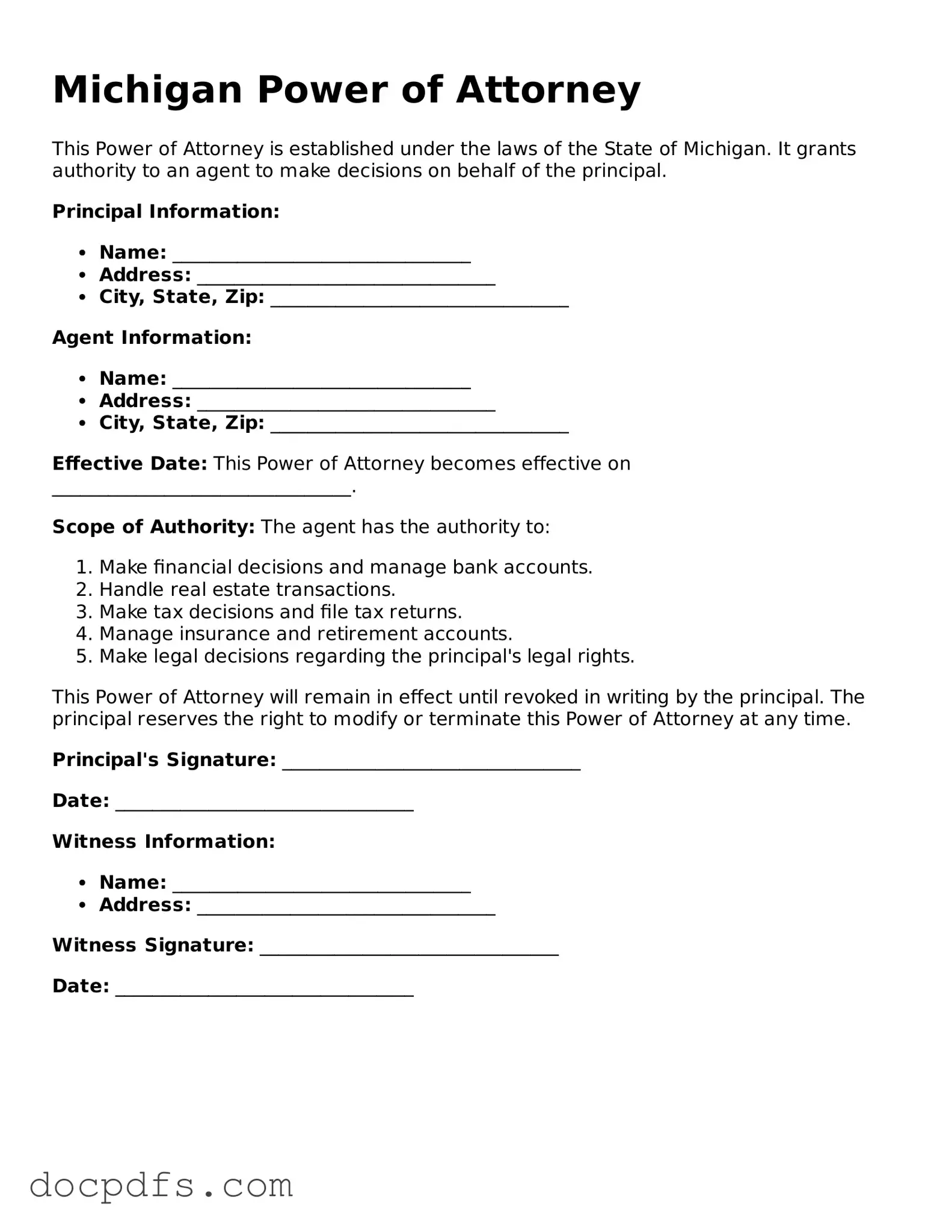What is a Power of Attorney in Michigan?
A Power of Attorney (POA) in Michigan is a legal document that allows one person (the principal) to designate another person (the agent or attorney-in-fact) to make decisions on their behalf. This can include financial decisions, medical choices, or other personal matters. The principal must be of sound mind when signing the document, and the agent must act in the best interests of the principal.
What types of Power of Attorney are available in Michigan?
Michigan recognizes several types of Power of Attorney, including:
-
Durable Power of Attorney:
Remains effective even if the principal becomes incapacitated.
-
Springing Power of Attorney:
Becomes effective only upon a specific event, such as the principal's incapacity.
-
Medical Power of Attorney:
Specifically grants authority to make healthcare decisions on behalf of the principal.
-
Financial Power of Attorney:
Allows the agent to manage the principal’s financial matters.
How do I create a Power of Attorney in Michigan?
To create a Power of Attorney in Michigan, follow these steps:
-
Choose a trustworthy agent who will act in your best interest.
-
Clearly outline the powers you wish to grant, whether they are broad or limited.
-
Complete the Michigan Power of Attorney form, ensuring all required information is included.
-
Sign the document in the presence of a notary public or two witnesses, as required by Michigan law.
Can I revoke a Power of Attorney in Michigan?
Yes, a Power of Attorney can be revoked at any time, as long as the principal is still competent. To revoke, the principal should create a written revocation document and notify the agent and any institutions that may have relied on the original Power of Attorney.
What happens if the principal becomes incapacitated?
If the principal becomes incapacitated, the Durable Power of Attorney remains in effect, allowing the agent to continue making decisions. However, if the POA is not durable, it will become void upon the principal's incapacity. It is crucial to specify the type of POA when creating the document to ensure it meets your needs.
Do I need a lawyer to create a Power of Attorney in Michigan?
No, it is not required to have a lawyer to create a Power of Attorney in Michigan. However, consulting with a legal professional can provide guidance and ensure that the document complies with state laws and accurately reflects your wishes.
Is a Power of Attorney valid in other states?
A Power of Attorney created in Michigan is generally valid in other states, but each state has its own laws regarding POAs. It is advisable to check the specific requirements of the state where the POA will be used to ensure its acceptance.

